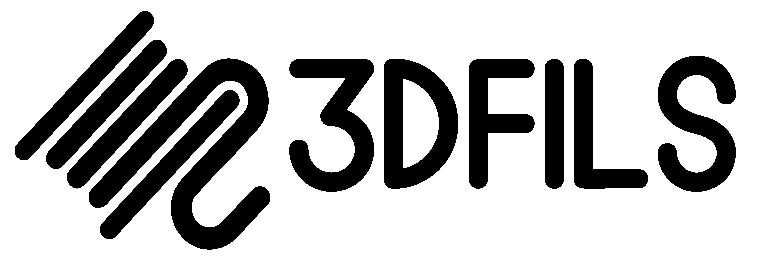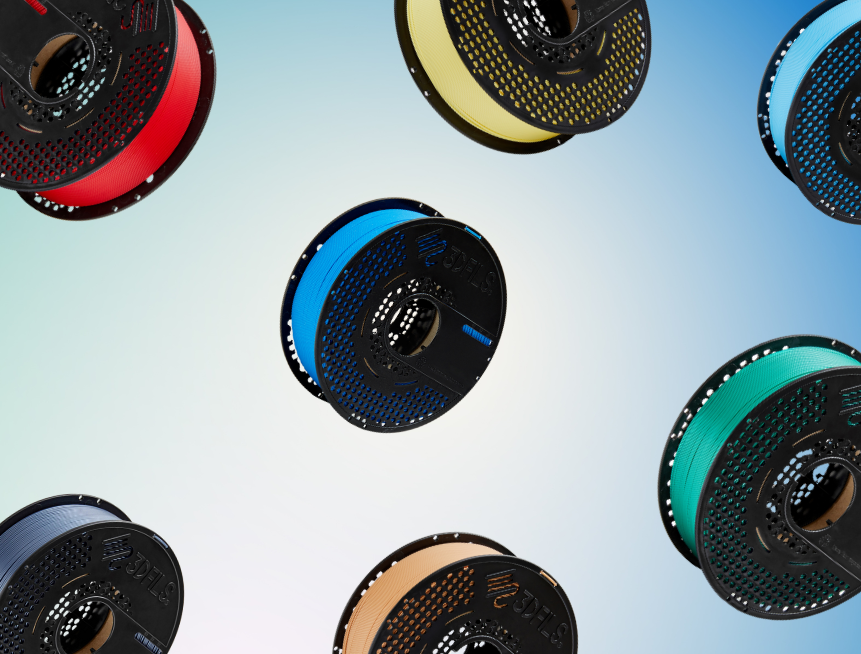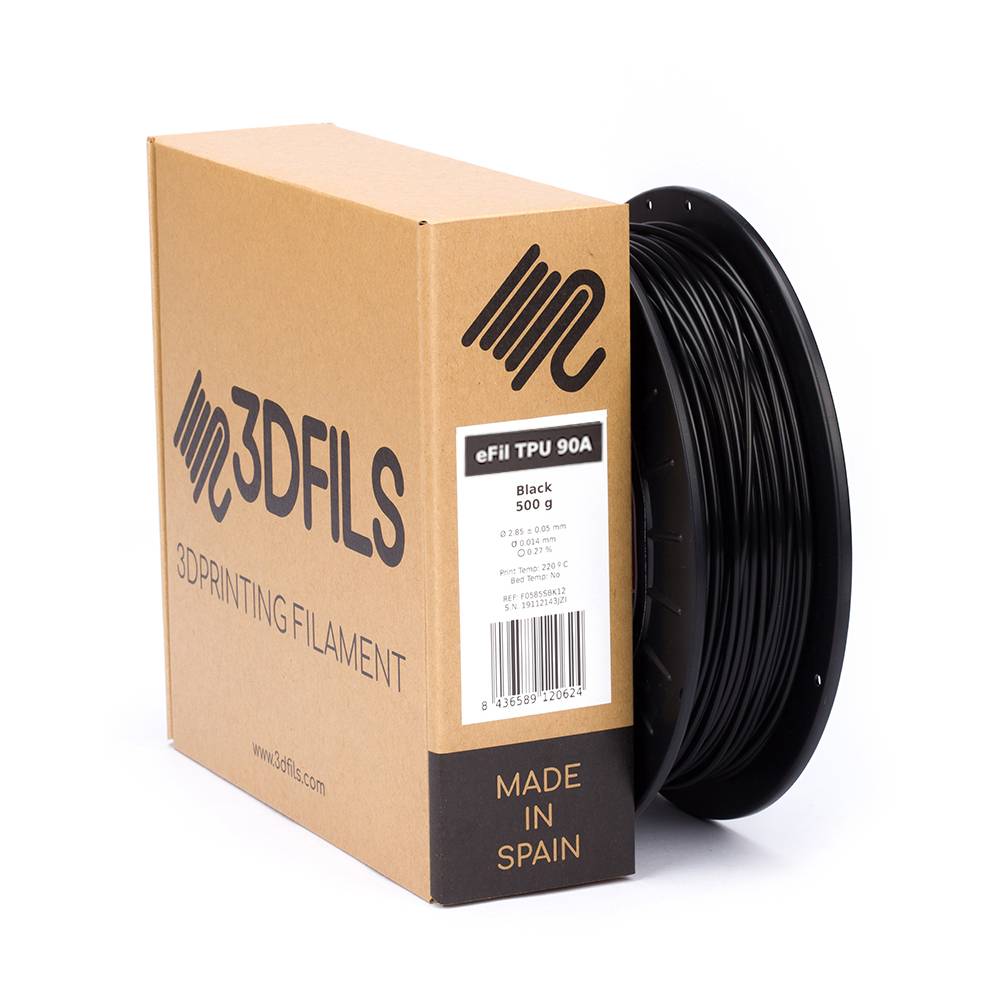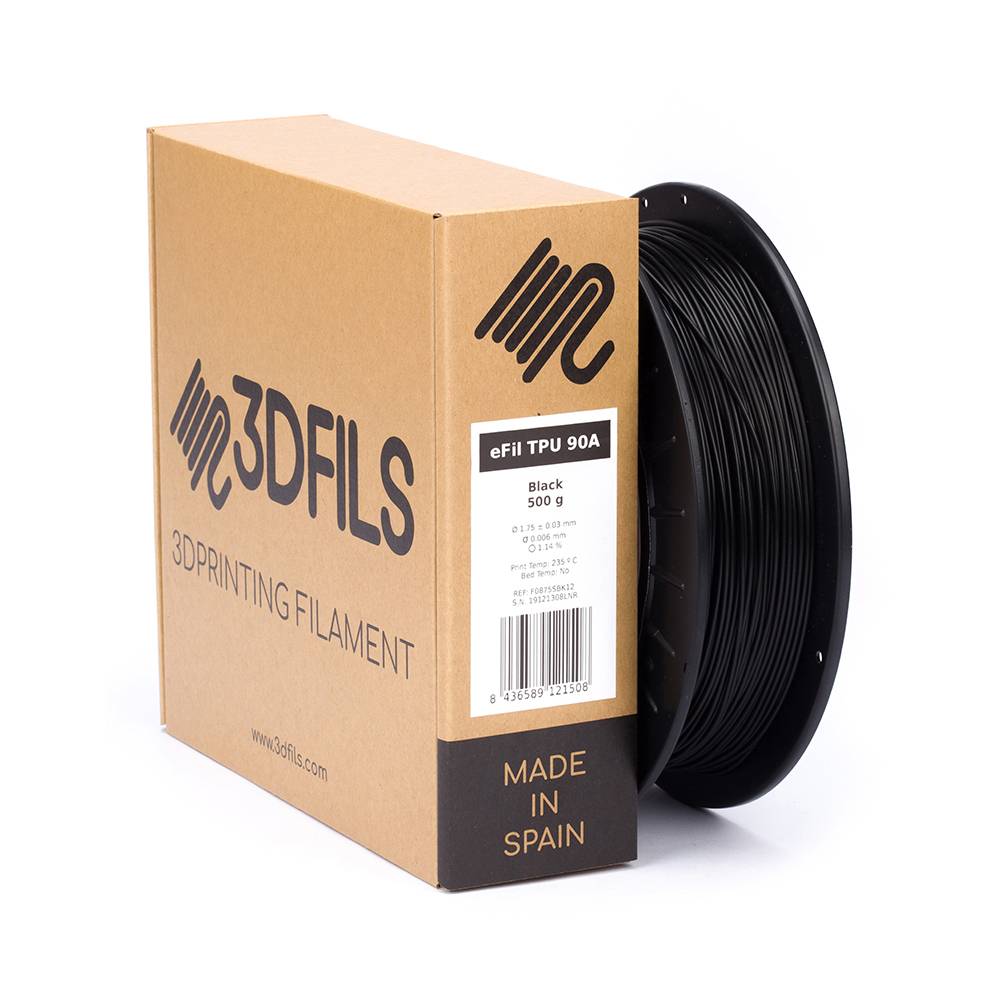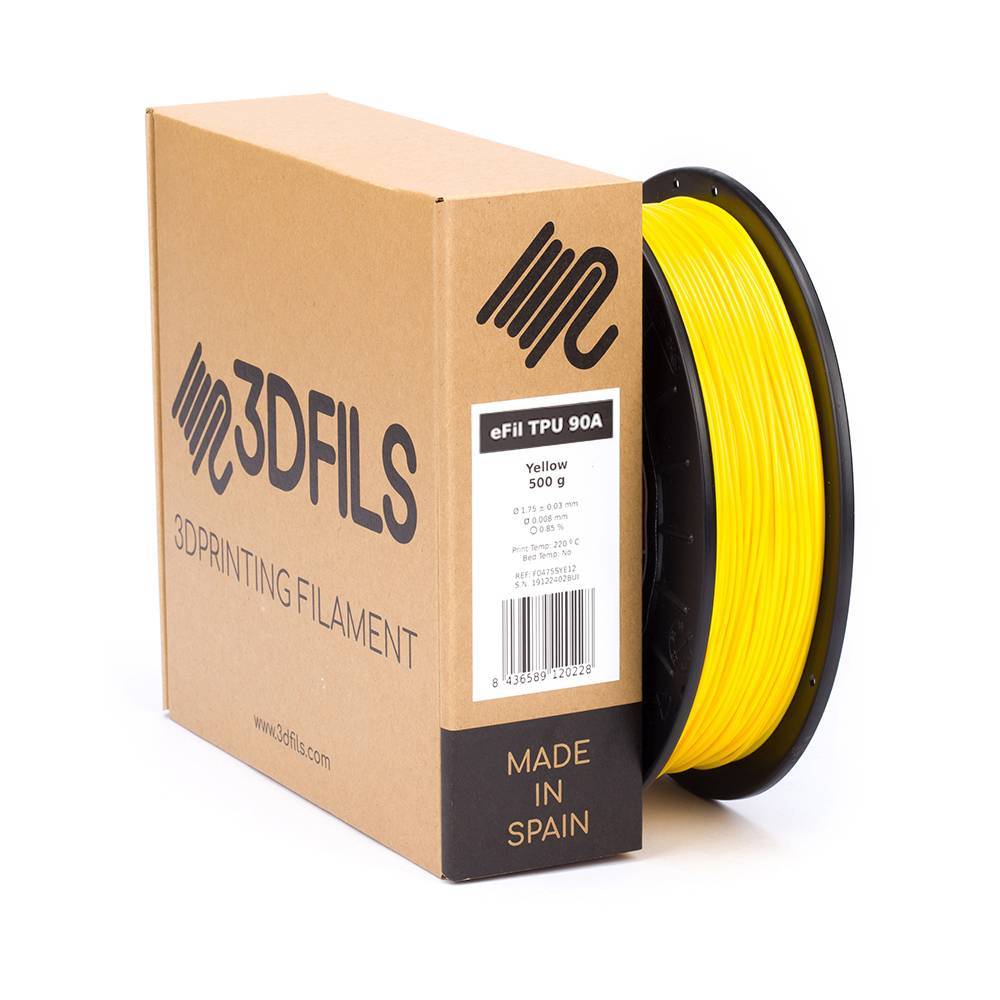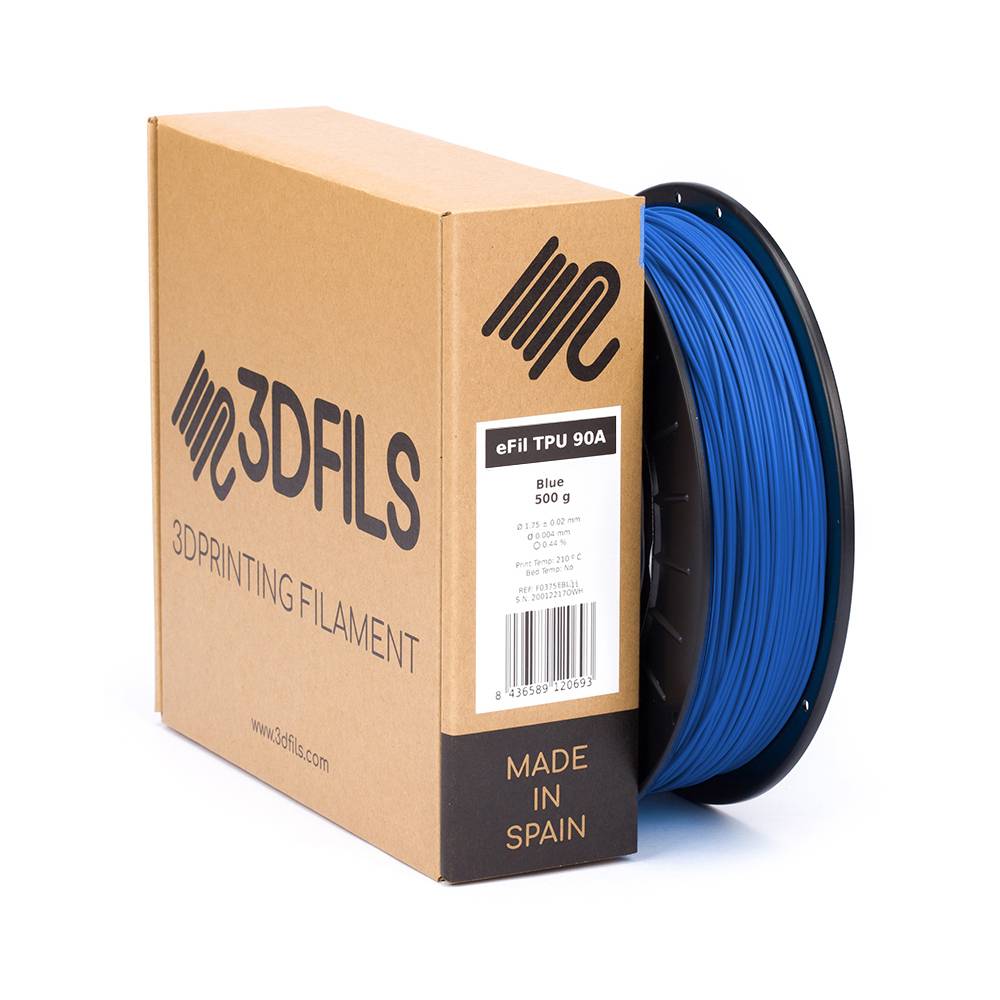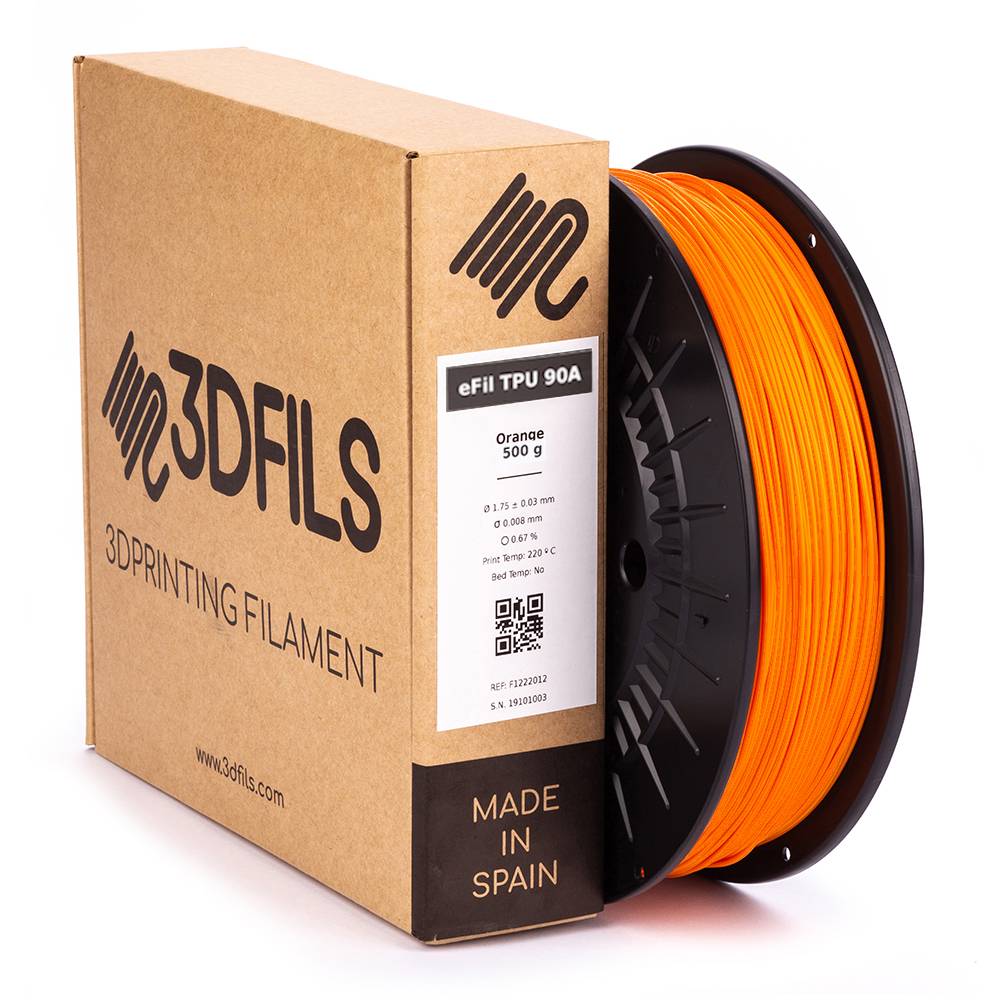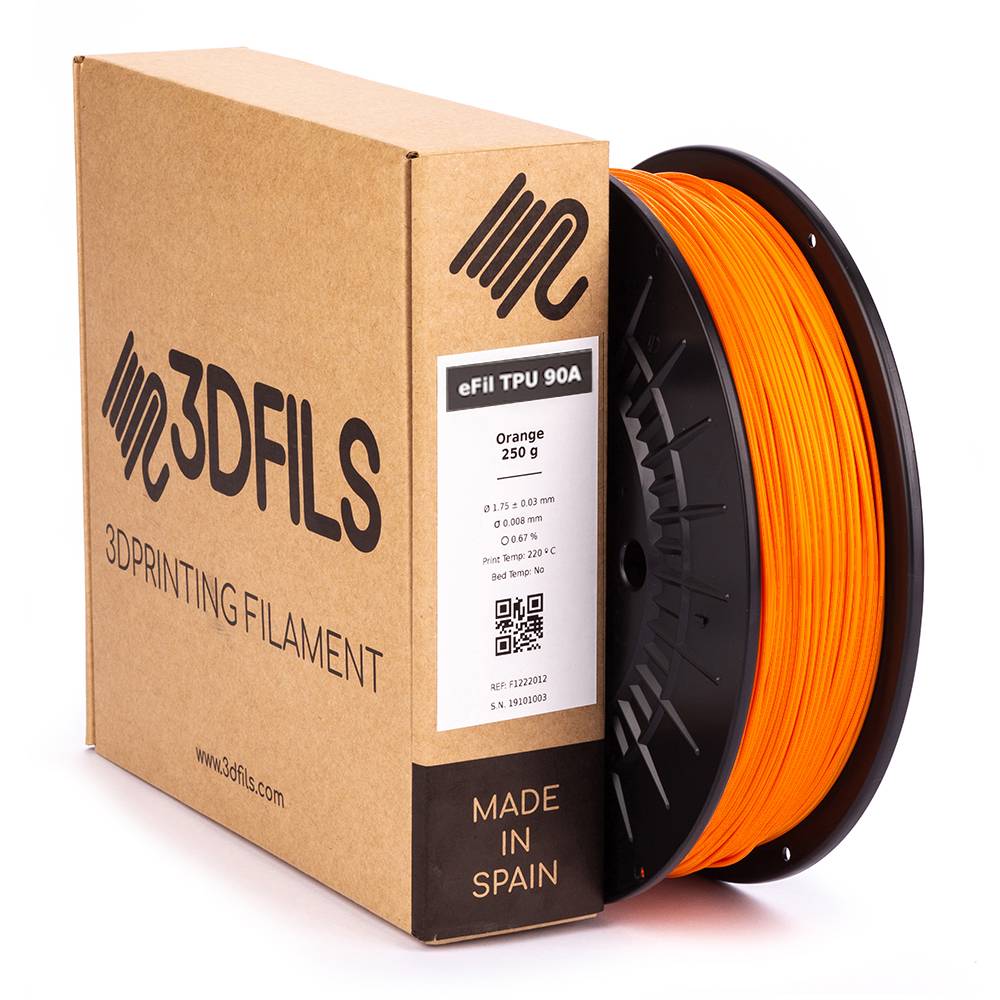3D TPU Filament 90A 1.75mm and 2.85 mm
What is SHORE A 90 TPU filament?
The 3D TPU SHORE A 90 filament is a flexible filament made from thermoplastic polyurethane (TPU) with moderate flexibility. It is characterized by:
- Flexibility:This TPU filament is flexible and can be stretched without losing its shape.
- High resistance:This material has a high resistance to elongation, traction and chemical substances.
Differences between different TPU hardness levels:
At 3DFils, we offer three different flexible filament strengths, each designed for different applications.
- eFil TPU 85A:This is the lowest hardness we offer. Perfect for applications requiring high flexibility, but more difficult to print than the others.
- eFil TPU 90A:This grade combines high flexibility with greater ease of printing. Perfect if this is your first time working with this type of material for 3D printing.
- eFil TPU 60D:This is the highest hardness in the catalog. It's very easy to print. Although it's not as flexible as the other products, it's perfect for applications that require strong impact resistance.
Applications of TPU Shore A 90 filament:
- Flexible parts:Shore A 90 TPU is ideal for printing flexible parts that need to bend or stretch without breaking, such as mobile phone cases, gaskets, tires, etc., but with a softer, more pleasant-to-the-touch texture.
- Prototyping:Shore A 90 TPU can be used for rapid and cost-effective prototyping of parts and designs that require flexibility and soft touch.
- Printing everyday objects:It can be used to print a wide range of everyday items, such as shoes, clothing, toys, etc., with a softer and more flexible texture.
- Industrial applications:Shore A 90 TPU is used in a variety of industrial applications, such as the manufacture of hoses, cables, and automotive parts that require flexibility and a soft feel.
Advantages of TPU Shore A 90 filament:
- Flexibility:Shore A 90 TPU is a flexible material that can bend and stretch without breaking.
- Abrasion resistance:Shore A 90 TPU is resistant to wear and abrasion, making it ideal for applications requiring contact with rough surfaces.
- Water and chemical resistance:Shore A 90 TPU is resistant to water, oils and many chemicals.
- Good adhesion between layers:Shore A 90 TPU has good interlayer adhesion, producing high-quality prints.
Disadvantages of TPU SHORE 90A filament
- Printing difficulty:Shore A 90 TPU can be more difficult to print than PLA or ABS, as it requires more precise print settings.
- Thread and oozing:Shore A 90 TPU may be prone to threading and oozing, which may affect print quality.
- Sensitivity to humidity:Shore A 90 TPU is sensitive to moisture, so it is important to store it properly to prevent moisture absorption.
Properties of TPU SHORE 90A filament
- Density:1.21 g/cm³
- Printing temperature:200-230 °C
- Heated bed temperature:Not necessary (recommended 50-60 °C)
- Retraction:2-4 mm
- Print speed:20 - 600 mm/s
- Modulus of elasticity:10 -100 MPa
- Tensile strength:40 - 60 MPa
- Flexural strength:50 - 70 MPa
- Elongation at break:300 - 500 %
- Melting point:180 ºC
